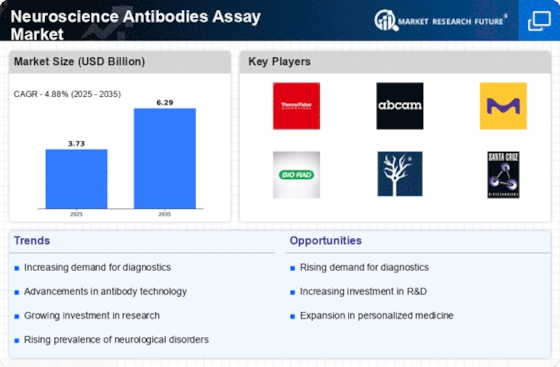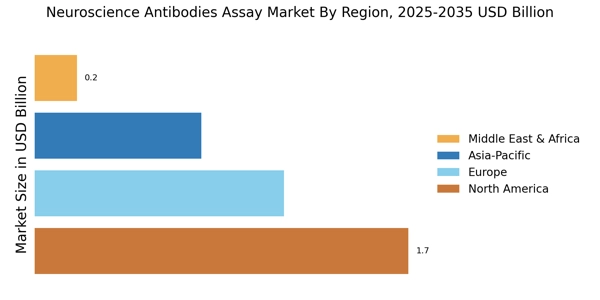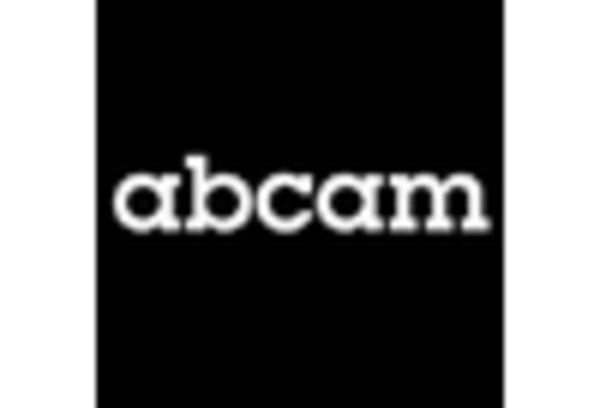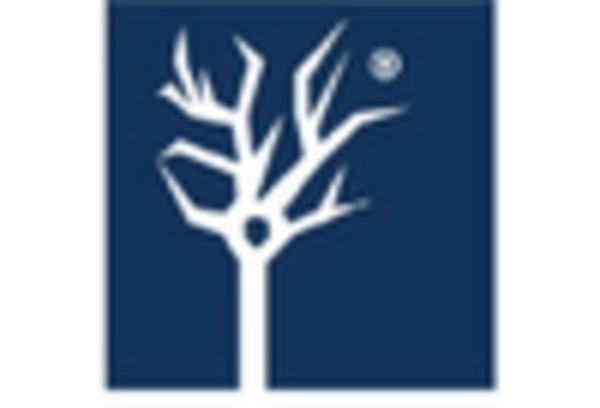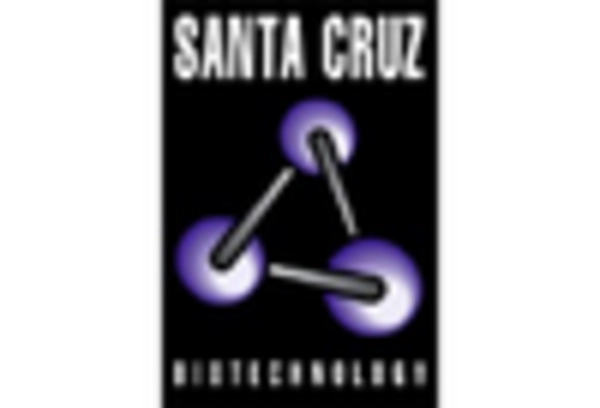Advancements in Biotechnology
Technological innovations in biotechnology are significantly influencing the Neuroscience Antibodies Assay Market. The development of high-throughput screening techniques and advanced imaging technologies has enhanced the ability to detect and quantify specific antibodies related to neurological diseases. These advancements facilitate more accurate and efficient assays, which are crucial for both research and clinical applications. Furthermore, the integration of artificial intelligence and machine learning in data analysis is streamlining the interpretation of assay results, thereby improving diagnostic accuracy. As biotechnology continues to evolve, it is likely to drive the demand for neuroscience antibodies assays, enabling researchers to explore new therapeutic avenues and enhance patient outcomes. The ongoing investment in research and development within this sector suggests a promising future for the Neuroscience Antibodies Assay Market.
Increased Funding for Neuroscience Research
The surge in funding for neuroscience research is a significant catalyst for the Neuroscience Antibodies Assay Market. Governments and private organizations are increasingly recognizing the importance of understanding neurological disorders, leading to enhanced financial support for research initiatives. This influx of funding allows for the exploration of novel therapeutic targets and the development of innovative assays. For instance, recent reports indicate that funding for neuroscience research has increased by over 20% in the past few years, reflecting a growing commitment to addressing these complex health issues. As researchers gain access to more resources, the demand for specialized antibodies and assays is likely to rise, further propelling the growth of the Neuroscience Antibodies Assay Market. This trend underscores the critical role of financial investment in advancing scientific knowledge and improving healthcare outcomes.
Rising Prevalence of Neurological Disorders
The increasing incidence of neurological disorders such as Alzheimer's disease, Parkinson's disease, and multiple sclerosis is a primary driver for the Neuroscience Antibodies Assay Market. As the global population ages, the demand for effective diagnostic tools and therapeutic interventions rises. According to recent estimates, neurological disorders affect millions worldwide, leading to a surge in research and development activities. This trend is likely to propel the market for neuroscience antibodies assays, as researchers seek to identify biomarkers and develop targeted therapies. The growing need for early diagnosis and personalized treatment options further emphasizes the importance of these assays in understanding complex neurological conditions. Consequently, the Neuroscience Antibodies Assay Market is expected to witness substantial growth as healthcare providers and researchers prioritize innovative solutions to address these pressing health challenges.
Emerging Markets and Research Collaborations
The expansion of emerging markets and increased research collaborations are pivotal factors influencing the Neuroscience Antibodies Assay Market. As countries invest in healthcare infrastructure and research capabilities, the demand for advanced diagnostic tools is likely to rise. Collaborative efforts between academic institutions, biotechnology companies, and healthcare organizations are fostering innovation and accelerating the development of new assays. These partnerships enable the sharing of knowledge and resources, which can lead to breakthroughs in understanding neurological disorders. Furthermore, emerging markets are becoming attractive destinations for research and development activities, as they offer unique patient populations and diverse genetic backgrounds. This trend is expected to enhance The Neuroscience Antibodies Assay Industry, creating new opportunities for growth and collaboration.
Growing Demand for Biomarkers in Drug Development
The escalating need for biomarkers in drug development is driving the Neuroscience Antibodies Assay Market. Biomarkers play a crucial role in the identification of disease mechanisms and the evaluation of therapeutic efficacy. As pharmaceutical companies strive to develop more effective treatments for neurological disorders, the demand for reliable assays to identify and validate biomarkers is increasing. This trend is particularly evident in the context of clinical trials, where the use of biomarkers can enhance patient stratification and improve trial outcomes. Recent data suggests that the market for biomarkers in drug development is projected to grow significantly, further emphasizing the importance of neuroscience antibodies assays in this process. Consequently, the Neuroscience Antibodies Assay Market is poised for growth as it aligns with the evolving needs of the pharmaceutical sector.


